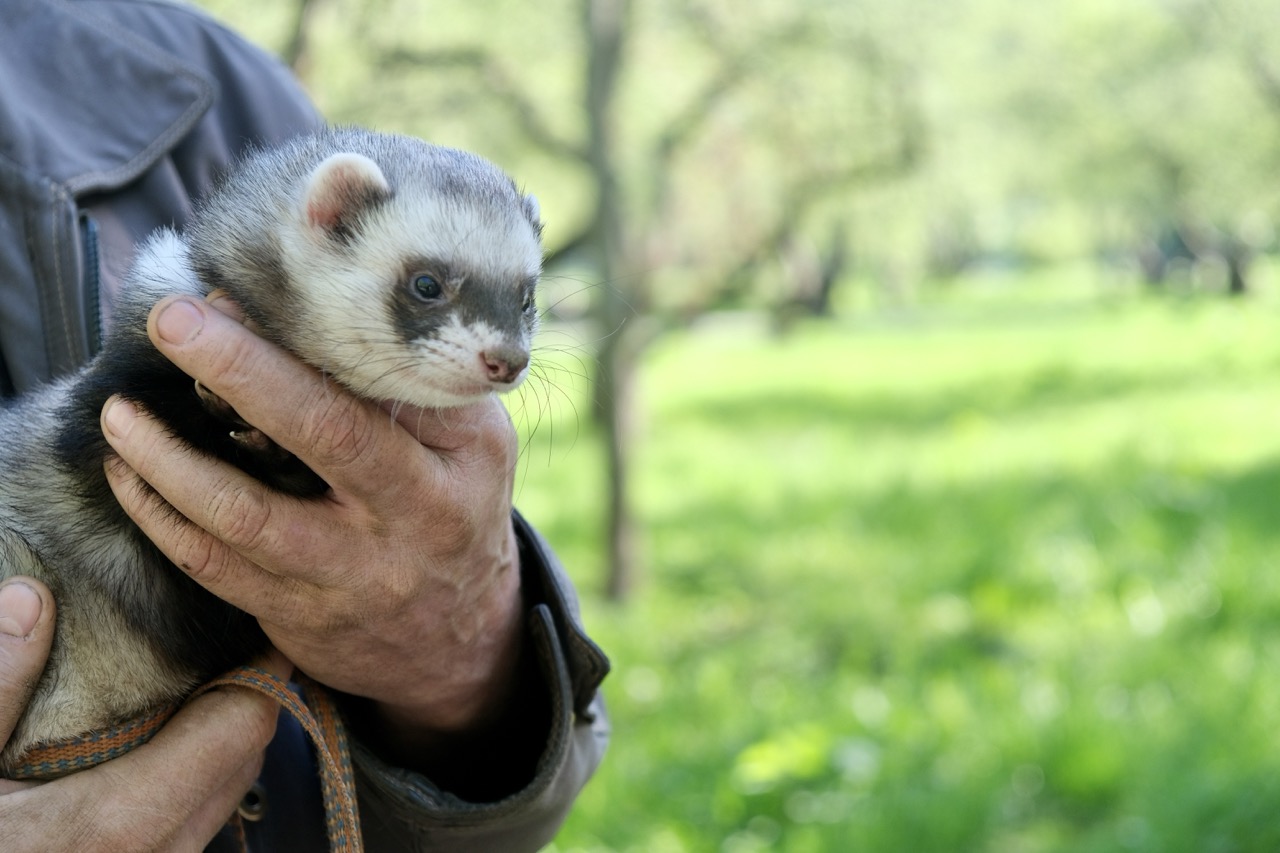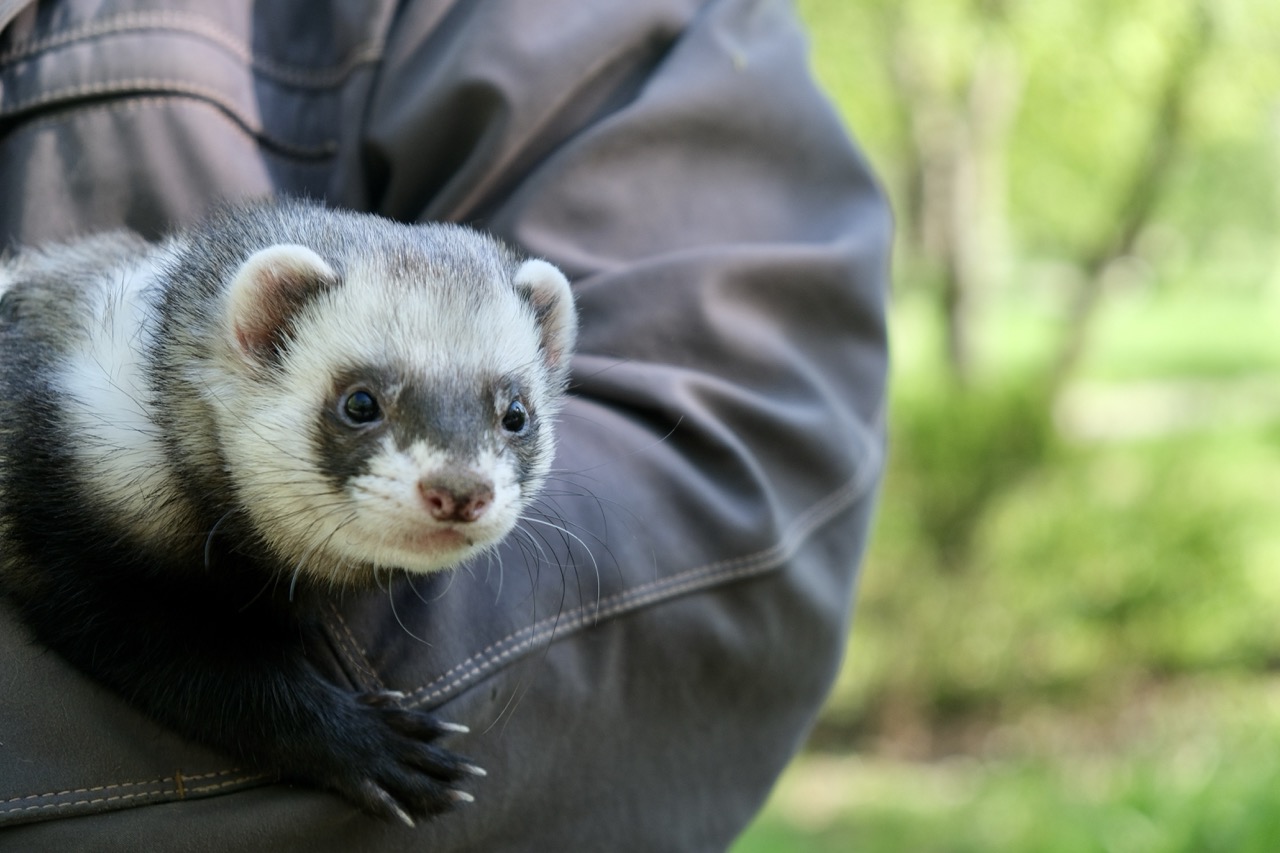Ferrets have become increasingly popular as household pets in recent years, captivating owners with their playful antics and curious nature. However, before deciding to welcome a ferret into your family, it’s essential to understand their unique needs and behaviors. This article will explore whether ferrets make good pets for families by examining their temperament, care requirements, advantages, disadvantages, and tips for successful integration into family life.
Understanding the Temperament of Ferrets as Pets
Ferrets are known for their vibrant personalities and playful behavior. They are highly social animals, often forming strong bonds with their owners and each other. Ferrets typically display a curious nature, exploring their environment with enthusiasm. This inquisitiveness can lead to engaging interactions, making them entertaining companions for families. However, potential owners should be aware that ferrets also have a mischievous streak, often getting into places they shouldn’t and creating a lively, sometimes chaotic atmosphere.
Despite their playful attitude, ferrets require socialization and attention. They thrive in environments where they are allowed to explore and interact with both humans and other pets. Ferrets often enjoy games such as hide-and-seek or chasing toys, which can provide valuable bonding experiences for families. Nonetheless, it is essential to monitor their interactions with children and other pets to ensure everyone remains safe and happy.
Another aspect of ferret temperament to consider is their vocalizations. Ferrets can be quite vocal, using a range of sounds to communicate their feelings and desires. Families should be prepared for the occasional chattering, whistling, or even barking. While some may find this endearing, others might see it as a nuisance. Understanding and accepting these traits is crucial for families considering a ferret as a pet.
Essential Care Requirements for Family Ferrets
Caring for ferrets involves several essential requirements that families must be prepared to meet. First and foremost, ferrets require a spacious, secure cage where they can rest and retreat when necessary. A large cage with multiple levels and enrichment items such as tunnels and hammocks can provide a comfortable living environment. Additionally, ferrets typically need several hours of supervised playtime outside their enclosure each day to fulfill their social and exercise needs.
Diet is another critical aspect of ferret care. These animals are obligate carnivores, meaning they thrive on a protein-rich diet. High-quality ferret food or a combination of raw meat and commercial ferret kibble is essential for their health. Families should also ensure that fresh water is always available and monitor their ferret’s eating habits to detect any potential health issues early on. Regular veterinary check-ups, vaccinations, and preventative care are also necessary to keep ferrets healthy.
Grooming and hygiene are important components of ferret care as well. Ferrets are relatively low-maintenance in terms of grooming, but regular nail trimming, ear cleaning, and occasional baths are necessary to maintain their well-being. Families should also be prepared for the unique scent that ferrets can produce, which comes from their skin glands. While regular cleaning of their enclosure and proper bathing can help manage this, potential pet owners should be aware that some odor may still persist.
Pros and Cons of Owning Ferrets in Family Settings
When considering ferrets as pets for families, several advantages come to light. One of the most significant benefits is their playful and affectionate nature. Ferrets often form strong bonds with their families, making them ideal companions for those who enjoy interactive pets. Their energetic demeanor can also provide entertainment for both adults and children, creating a lively household atmosphere.
Another advantage of owning ferrets is their relatively small size, making them suitable for families living in smaller spaces. Unlike larger pets, ferrets require less room to roam, which can be a significant benefit for city dwellers or those with limited living space. Additionally, ferrets can coexist peacefully with other pets, provided they are introduced correctly and monitored during interactions. This versatility can create a harmonious family dynamic that includes a variety of pets.
However, there are also some drawbacks to owning ferrets as family pets. Their mischievous nature may lead to destructive behavior if not properly supervised, and families must be prepared for the added responsibility of safeguarding their home. Ferrets can also be prone to certain health issues, including adrenal disease and insulinoma, which may lead to expensive veterinary bills. Moreover, their unique odor may not be appealing to everyone in the household, requiring additional cleaning and maintenance to manage.
Tips for Integrating Ferrets into Your Family Lifestyle
Successfully integrating ferrets into a family lifestyle requires thoughtful planning and consideration. First, families should establish a routine that includes scheduled playtime and interaction. Ferrets thrive on socialization, and setting aside time each day can strengthen the bond between the ferrets and family members. Involving children in caring for the ferret can also teach responsibility and empathy, fostering a positive relationship between pets and kids.
Safety is another essential aspect to consider when introducing ferrets into a family environment. Families should create a safe space for the ferret to explore, removing potential hazards such as small objects, toxic plants, and unsecured electrical cords. Supervision during playtime is crucial, especially when children and ferrets are together, to avoid accidents or unintentional injuries. Additionally, educating family members about the ferret’s behavior and needs can ensure everyone is on the same page regarding care and interaction.
Lastly, patience is key when welcoming ferrets into a home. It may take time for both the ferrets and the family to adjust to each other’s presence. Families should remain attentive to the ferrets’ behaviors and needs, allowing for gradual integration and establishing trust. By nurturing a positive environment and embracing the unique qualities of ferrets, families can create a loving and engaging home for these delightful pets.
In conclusion, ferrets can make wonderful pets for families, provided that their unique temperament and care requirements are understood and accommodated. With proper attention, a commitment to their care, and the willingness to embrace their playful nature, ferrets can become cherished members of the family. By weighing the pros and cons and following integration tips, families can enjoy the companionship of these intriguing animals while ensuring a harmonious household for all.










